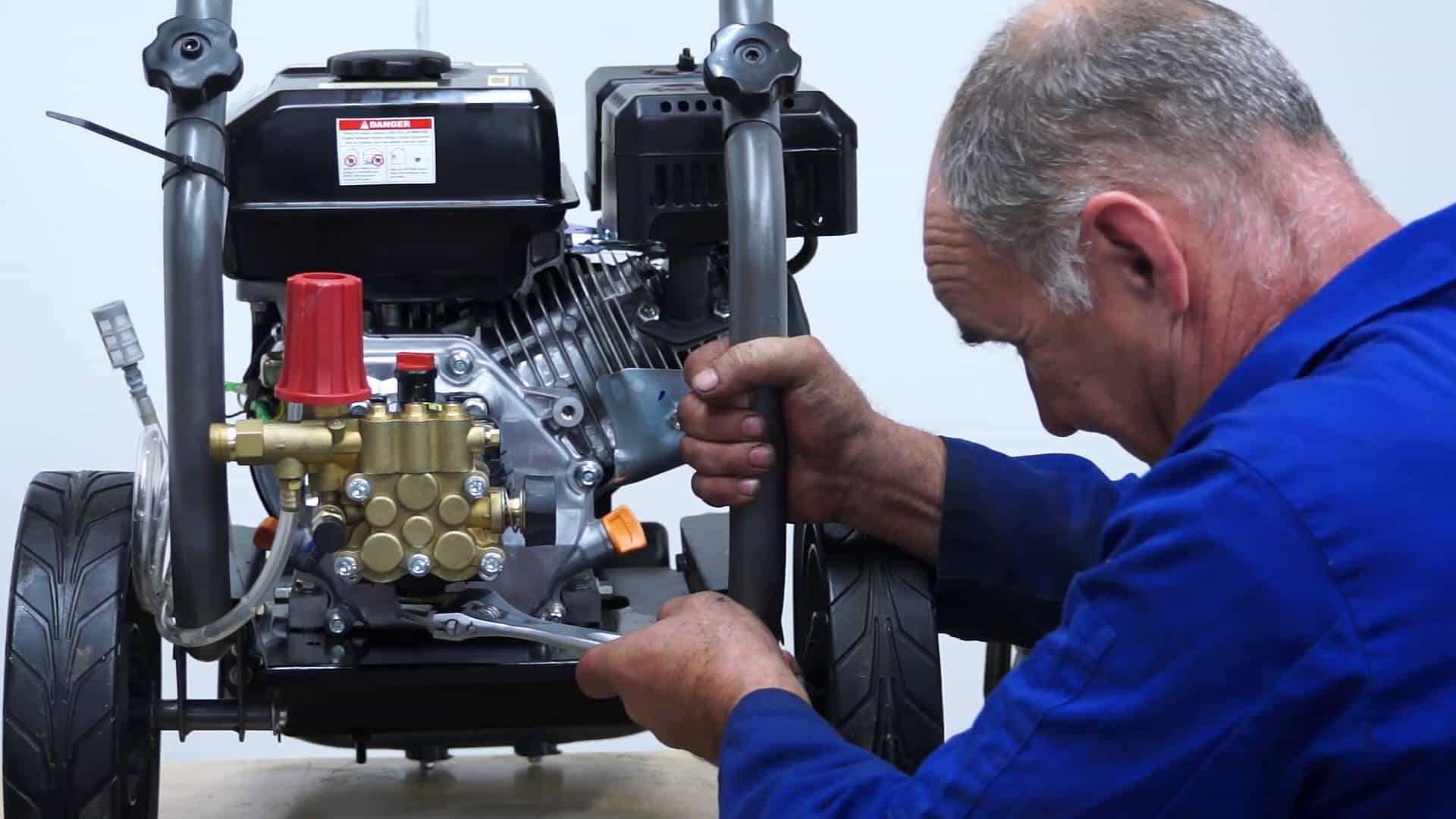Pressure washers are incredibly useful in many settings, whether industrial, commercial, or residential. If you need to clean up a building site or spruce up the exterior of your family home, a pressure washer provides a lot of power behind your cleaning effort. But when it comes to getting the right pressure washer, which should you go for? There are benefits to both hot pressure washers and cold pressure washers, so let’s show you the differences between the two and which would be beneficial for your situation.
Hot Pressure Washers
Hot pressure washing is best for when you need to to clean oily or greasy surfaces. Because hot water is better at removing stubborn stains from surfaces, especially with detergent, this is a better choice for you in many environments. For example, if you need to clean automotive parts or food stains in a restaurant environment, a hot pressure washer will work harder at removing these stains. It also has additional uses in different environments. For example, you can use a hot pressure washer to help you degrease surfaces. For example, if you work in the automotive industry and you need to degrease an engine bay quickly using a hot pressure washer, it can do this with ease. It’s also possible to use a hot pressure washer with cold water. If you don’t like the idea of using hot water or you need to save energy, you can use the same unit for cold water pressure washing by turning off the boiler. While cold water is effective for cleaning most dirt, using hot water is more efficient because it speeds up the process. While hot pressure washers are easy to use and benefit a multitude of circumstances, they are more expensive and bulkier. They require more maintenance as a result but they are costlier than their cold-water counterparts.
Cold Pressure Washers
For most uses, cold water pressure does the job. The process of cold pressure washers is straightforward where the mechanical force of the water on a surface will break up stains and dirt. It’s useful for washing away debris and mud, especially on tyres. If you want to speed up the process, you can add detergent. However, if you need to clean greasy or oily surfaces its hot water counterpart is better. While cold water pressure washing is very suitable in many situations due to its portability, it isn’t as effective as cleaning grease or oil as hot water. But cold water pressure washers are suitable for a wide range of applications. They are less expensive than hot pressure washers and require less maintenance. They are also more portable and compact, making them ideal for a wide variety of standard cleaning tasks. For those that need to clean the exterior of their home or give the car a very quick wash, a cold water pressure washer does the job.
As you can see, there are benefits to both in terms of cost and efficiency. For those that need to operate on a budget and have general cleaning duties, a cold water pressure works fine. However, those that need to clean something quickly, especially with grease or oil, a hot pressure washer is the better option. To get an expert opinion on which Pressure Washer is right for you, contact us today.


